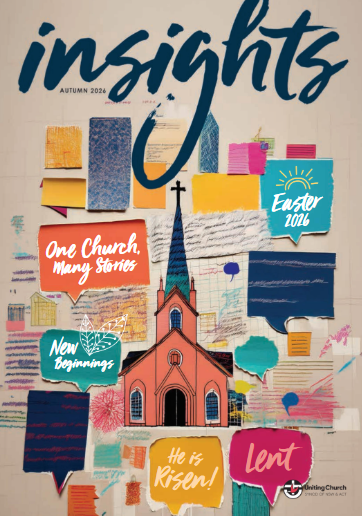September 7, Proper 18
Readings: Jeremiah 18:1-11 and Psalm 139:1-6, 13-18, Deuteronomy 30:15-20 and Psalm 1, Philemon 1:1-21, Luke 14:25-33
If there is a common theme in this week’s lectionary readings it is probably something to do with being formed and shaped by God. In Jeremiah 18 the people of Israel are likened to clay formed by God’s hand, in Psalm 139 we are reminded about how God has formed each of us and knew us before we were born, and in Deuteronomy 30, Psalm 1 and Philemon 1, the people are formed morally and spiritually – towards God, towards wisdom and blessing, towards a new relationship between human beings that is no longer configured along the lines of slave and master, but rather as brothers and sisters in Christ. Philemon is encouraged to welcome Onesimus “no longer as a slave but more than a slave, a beloved brother… both in the flesh and in the Lord.”
But perhaps the greatest re-shaping of humanity is outlined by Jesus as he calls the people away from wealth and self-interest and anything else that might stand in the way of following him. Even the things that we hold most dear – our family, parents, spouses and children and finally, even our life itself, must be reframed and reshaped in the life of Christian discipleship. But we hope and trust that such a reframing will be Godly and good, and that something beautiful will emerge when we re-commit ourselves to the way of Jesus.
September 14, Proper 19
Readings: Numbers 21:4b-9 and Psalm 98:1-5 or Psalm 78:1-2, 34-38, 1 Corinthians 1:18-24, John 3:13-17
John 3:16 is one of the most quoted pieces of scripture today. And yet it is immediately preceded by a strange description of the “Son of Man” as like a “serpent in the wilderness” – but a serpent that somehow promises eternal life. The corresponding passage from Numbers tells of the people of Israel suffering in the wilderness from a lack of food and water and, importantly, from a terrible curse of snakes. This, in turn, evokes the memory of the first serpent, the tempter in the Garden of Eden.
Though the imagery is complex and confusing it seems clear that God’s saving action in the world must, at some point, address the question of “original” rebellion and the drive of humanity to try and create our own salvation. Time after time we fail to trust God’s grace and providence, and try to follow our own path – so often leading to despair and so often causing us to flee back into the seeming “safety” of slavery, evil and injustice. But God has another way. Firstly through Moses, who shows that the power of the serpent to wound and destroy is powerless against the power of God to heal. And then through Jesus, who comes to save the entire cosmos through the infinite love of God which has power over all evil, temptation and sin.
September 21, Proper 20
Readings: Jeremiah 8:18-9:1 and Psalm 79:1-9, Amos 8:4-7 and Psalm 113, 1 Timothy 2:1-7, Luke 16:1-13
The parable told at the start of Luke 16 is one that is difficult for us to make sense of. It tells of a manager of a property who is not doing his job well, and when he is told that he will be “let go”, he does “deals” with others to benefit himself to the detriment of the owner of the property. And yet, while at first the owner of the property is displeased with the manager’s work, this turns around when the manager does his deals. As a lesson in economics or even morality this parable is confusing . Yet, in verse 13, we are reminded that the parable is more about allegiance than anything else – about making sure that God is our master rather than riches (mammon). In the end, it may be that the manager got it right. By doing deals he secured for himself enough to continue living, and even the possibility of ongoing relationships with other people in his community. Whatever the case, it is important to realise that the kingdom of God is not a highly efficient economic machine, but rather a place where all people can find enough to live and where we open possibilities for new relationships – even when this seems to mean “breaking the rules”. A liberating lesson for a world where the systems of mammon are worshipped so readily.
September 28, Proper 21
Readings: Jeremiah 32:1-3a, 6-15 and Psalm 91:1-6, 14-16, Amos 6:1a, 4-7 and Psalm 146, 1 Timothy 6:6-19, Luke 16:19-31
The story of Lazarus and the rich man in Luke 16 continues and expands upon the theme of loyalty to God over wealth from last week, except now it is absolutely clear that it is the wealth of the rich man that leads him to Hades. In this stark text there seems to be no mercy for the rich man, nor for the wealthy family who he wants to prevent suffering his own fate. As a warning against the love of wealth and the disastrous consequences of extreme inequality the story is clear. Pursuing riches is a great evil and has no place in God’s kingdom.
This theme is also explored in 1 Timothy 6, but now things are clearer for the faithful. Wealth and riches are not the path for us, as they lead to ruin and destruction, but we should all have, and be satisfied with, the basics of life. Moreover, our aim should be to be “rich in good works, generous and ready to share” – a powerful system of Godly economics that begins to bring everyone enough, and stands against the accrual of wealth by the few. This “economic system” is deeply religious at its heart for it is only possible because of faith and obedience to Christ over and against all the false gods of the age.
September’s Lectionary Reflections are based on the Revised Common Lectionary and have been prepared by Rev. Dr Niall McKay, Educator for Lifelong Learning





